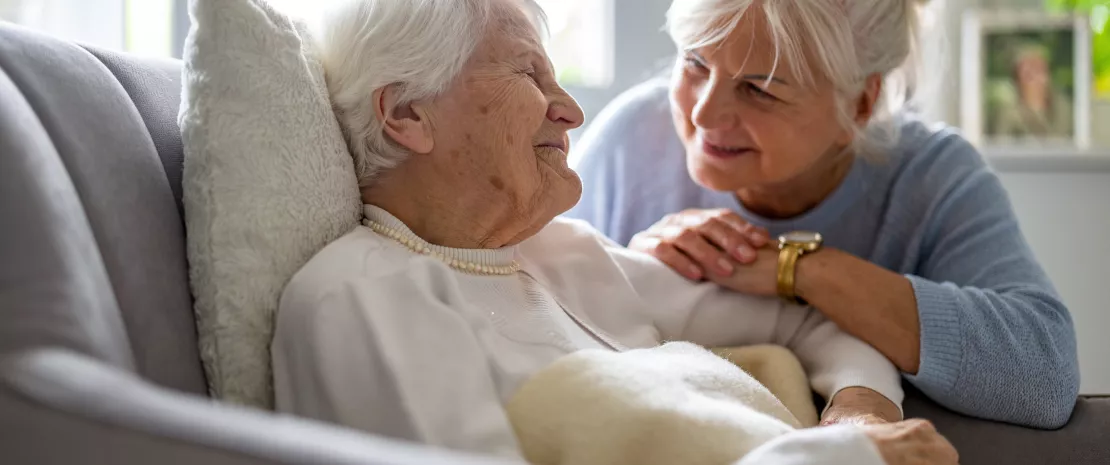The surprising key to Alzheimer's may be in your gut, not your brain
The first signs of Alzheimer's disease might not be in your central nervous system or brain, but in your gut. A new study finds it's not overall gut health, but specific bacteria that matter (new biomarkers). Shockingly, some species protect you, while others, even in the same family, may be harmful.
- Learn all about microbiota
- Microbiota and related conditions
- Act on your microbiota
- Publications
- About the Institute
Healthcare professionals section
Find here your dedicated section
Sources
This article is based on scientific information

About this article
For years, we've known that our gut and our brain are in constant conversation. This "gut-brain axis" is why you might feel "butterflies" when you're nervous. Now, a groundbreaking new study 1 suggests this connection is far more important than we ever imagined, revealing that the earliest clues to Alzheimer's disease may not be in the brain at all, but hidden among the trillions of bacteria living in our gut.
It’s not the size of the crowd, but who's in it
Scientists used to think that in Alzheimer's, the problem was a general loss of different types of gut bacteria, like a garden becoming less diverse. But this new research found something completely different. In people with early memory loss,(those diagnosed with
(sidenote:
Mild Cognitive Impairment (MCI)
MCI is a clinical stage between the expected cognitive decline of normal aging and the more severe decline of dementia. Individuals with MCI have noticeable memory or thinking problems but can still perform most daily activities, representing a critical window for intervention and study.
)
the overall number of bacterial types was fine.
The real problem was a shift in which specific bacteria were present. The study identified 59 precise types of bacteria, potential biomarkers that were either more or less common in people on the path to Alzheimer's. This tells us it's not about having fewer bacteria, but about having the wrong ones in charge.
The gut's heroes and villains can look alike
This is where the story gets truly fascinating. The study revealed that two bacteria from the exact same family can have completely opposite effects. Think of it like a family with a "good twin" and an "evil twin". One bacterium, named Bacteroides eggerthii, was linked to a lower risk of memory problems, acting like a hero for the brain. But its close relative, Bacteroides thetaiotaomicron, was linked to a higher risk, acting like a villain. This is a critical discovery because it means previous science, which couldn't tell these bacterial "relatives" apart, was missing the most important details in understanding the disease.
What are the stages of Alzheimer's disease?
No signs of the disease are detectable; minor memory lapses are age-related and not linked to cognitive decline.
Occasional forgetfulness appears (difficulty finding words, mixing up names, misplacing objects…), but without any impact on social or professional life.
Cognitive issues become noticeable and recurrent: disorientation, misplaced items, trouble concentrating, repetitive speech… The person is aware of it, which may cause anxiety or denial.
Alzheimer’s is officially diagnosed; memory loss and difficulty with complex tasks (mental calculations, remembering recent events) increase, though basic autonomy remains intact.
The patient can no longer manage certain daily tasks alone (like cooking or choosing clothes), even if basic needs (eating, using the toilet) are still met; home assistance becomes necessary.
Assistance is needed for basic activities, and behavioral disorders (agitation, wandering, hallucinations, suspicion, aggression…) make home life increasingly difficult.
The patient becomes unable to move or communicate (speak, smile), fully dependent on others for all care needs, often facing physical complications in this final phase. 2
Toward a new future for early detection
So, what does this all mean for you? This research is paving the way for a revolutionary new approach to diagnosis of Alzheimer’s disease. By identifying a "good guy" bacterium called Akkermansia muciniphila, which was linked to less of the
(sidenote:
Toxic amyloid protein
Amyloids are aggregates of proteins that fold together. In certain neurodegenerative diseases such as Alzheimer's disease, amyloid plaques form from aggregates of misfolded proteins, composed mainly of beta-amyloid protein. These plaques form around neurons and prevent them from functioning properly.
https://emedicine.medscape.com/article/335414-overview
)
found in Alzheimer's patients brains, scientists are creating a "fingerprint" of a healthy gut.
One day, we might be able to use a simple stool sample to check for these specific bacterial heroes and villains. This could help spot a person's risk for Alzheimer's years earlier than we can now, opening a crucial window to protect brain health through diet and lifestyle.
















